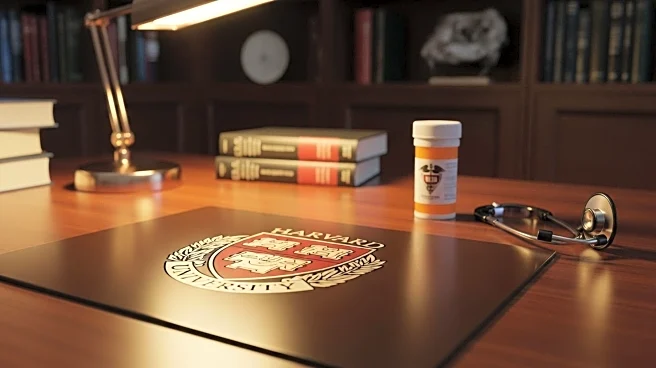What's Happening?
Dr. Andrea Baccarelli, dean of Harvard University's T.H. Chan School of Public Health, co-authored a study linking acetaminophen, the active ingredient in Tylenol, to neurodevelopmental disorders such as autism. This study was cited by President Trump and FDA Commissioner Dr. Marty Makary in a warning to pregnant women to avoid Tylenol. However, Baccarelli was previously a paid expert witness in a lawsuit against Tylenol's manufacturer, Kenvue, which was dismissed by a federal judge for unreliable evidence. The judge criticized Baccarelli's work as incomplete and misleading. Despite this, Baccarelli maintains his stance on the risks of acetaminophen during pregnancy.
Why It's Important?
The controversy surrounding Baccarelli's study and his role as an expert witness raises concerns about the integrity of scientific research and its influence on public health policy. The administration's warning could impact consumer behavior and pharmaceutical sales, as well as spark debates within the scientific community about the validity of the research linking Tylenol to autism. This situation underscores the importance of transparency and rigorous peer review in scientific studies that inform public health decisions.
What's Next?
The administration's warning may lead to increased scrutiny of acetaminophen and its effects on pregnancy, potentially prompting further research and regulatory reviews. Pharmaceutical companies might face pressure to address safety concerns and could see changes in consumer demand. Public health officials may need to balance caution with evidence-based recommendations to avoid unnecessary panic among expectant mothers.
Beyond the Headlines
This case highlights the ethical considerations in scientific research, particularly the potential conflicts of interest when researchers serve as paid expert witnesses. It also raises questions about the role of government in disseminating health warnings and the responsibility of scientists to ensure their findings are robust and unbiased. Long-term, this could influence how scientific evidence is used in legal cases and public health policy.










